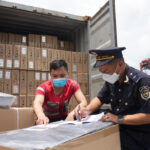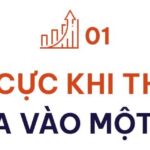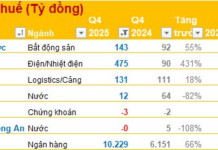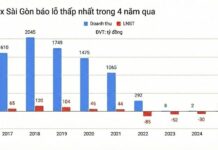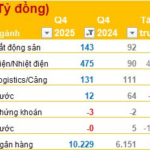Export Contracts Signed Despite No Rice Reserves
Vietnam’s Ministry of Industry and Trade has recently issued conclusions regarding the rice business operations of traders in the Mekong Delta region, following governmental instructions.
One prominent violation identified was the failure of traders to maintain a minimum circulating rice reserve of 5% of their exported rice volume in the preceding six months, as mandated by Decree 107 on rice export trade.
This mandatory mechanism aims to ensure a balance between domestic supply and demand, especially during periods of volatile global market conditions. However, inspections revealed that numerous enterprises maintained reserves merely on paper or, worse, had no actual rice reserves whatsoever.
For instance, Hau Giang Food Joint Stock Company had no rice reserves despite signing numerous large export contracts. A similar situation occurred with Can Tho City Food One-Member Limited Liability Company, which maintained only half of the required minimum reserves. These loopholes expose the domestic market to potential imbalances when demand surges or international prices skyrocket.
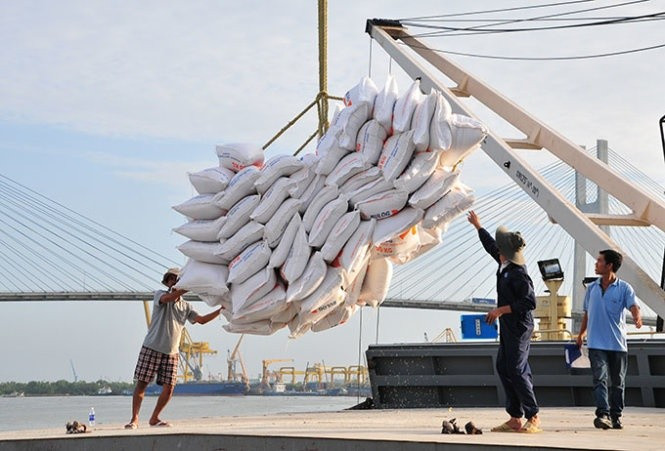
Many companies were found to have no rice reserves despite signing significant export contracts.
Additionally, the Ministry of Industry and Trade pointed out violations related to warehouses and milling facilities. Some traders utilized substandard rented warehouses that failed to meet fire safety requirements and lacked hygiene and safety certifications. Vinh Long Food Joint Stock Company was cited for using dilapidated warehouses that required renovation, while Tien Giang Food Joint Stock Company relied entirely on external partners for milling, lacking independent facilities with the necessary certifications.
Documentation, Tax, and Governance Lapses
The inter-sectoral inspection team also highlighted irregularities in the signing and execution of commercial contracts. Several enterprises failed to attach mandatory documents, such as bills of lading, health certificates, and quality certificates, to their export contracts. This situation was exemplified by Sunrise Ins Joint Stock Company and Angimex Joint Stock Company, whose contracts lacked quality certificates and transport documents.
Meanwhile, Trung An High-Tech Agriculture Joint Stock Company presented photocopies of health certificates for rice exports to African countries, an invalid practice that could lead to potential risks in international trade disputes.
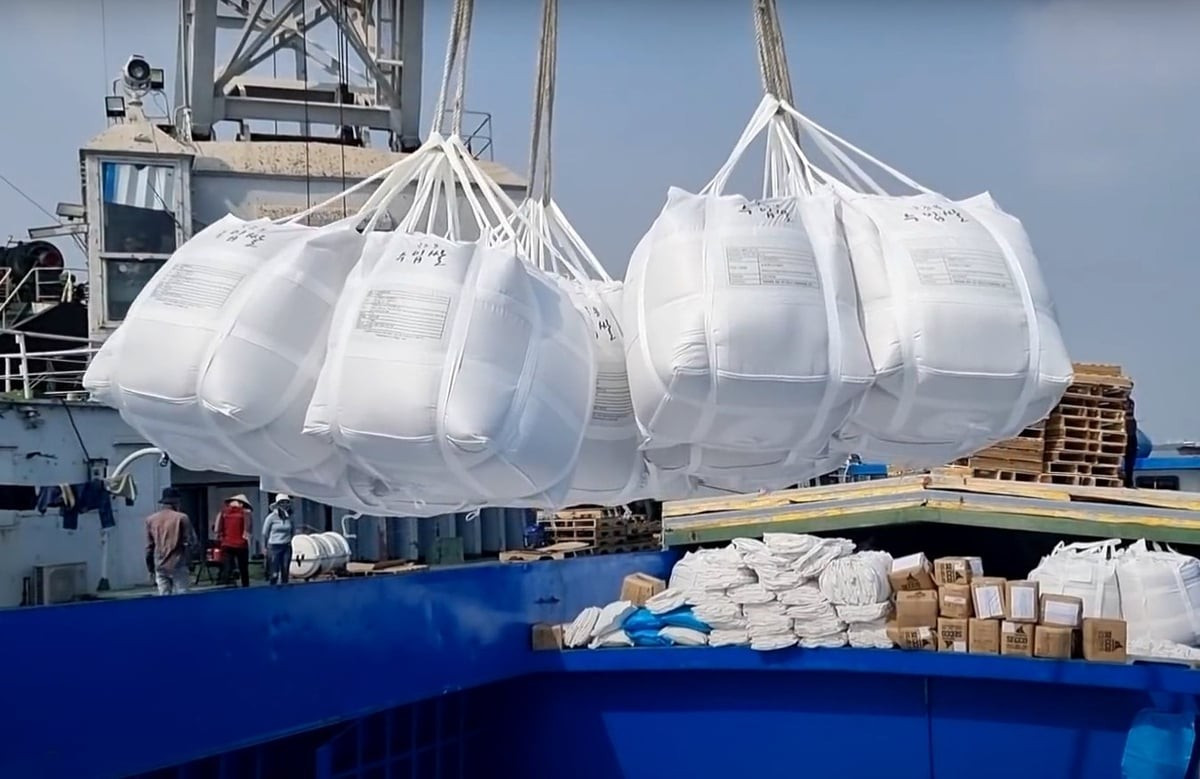
The Ministry of Industry and Trade has requested enterprises to promptly rectify the violations.
Furthermore, tax and financial obligations emerged as another area of concern. Soc Trang Food Joint Stock Company was found to have overdue tax payments, with outstanding debts exceeding VND 1.5 billion. Can Tho City Food One-Member Limited Liability Company was implicated in understating contract values to reduce tax liabilities, constituting a severe violation that could result in state budget revenue losses.
Beyond these specific issues, many enterprises also exhibited weaknesses in internal governance. Some lacked dedicated supervisory units, leading to lax documentation practices and recurrent errors in declarations.
Based on the inspection findings, the Ministry of Industry and Trade has instructed the violating enterprises to augment their circulating rice reserves, obtain confirmation from local Departments of Industry and Trade, and promptly renovate or terminate contracts for substandard warehouses. Enterprises that failed to submit periodic reports on time must commit to submitting accurate and timely reports henceforth, with data cross-checked against customs and tax authorities.
Regarding financial obligations, enterprises with tax arrears must settle their debts within 30 days; otherwise, they will face enforcement measures in accordance with the Law on Tax Administration. For violations pertaining to contracts and commercial documents, the Ministry instructed enterprises to standardize procedures, properly archive documents, and produce them upon request.
Specifically, for Sunrise Ins Joint Stock Company, the Ministry demanded a comprehensive review of their document management procedures and immediate rectification of delays and transparency issues. Failure to comply will result in consideration for suspension or revocation of their rice export license. Enterprises with repeated violations may be subject to the revocation of their eligibility for rice export.
In light of the Philippines’ temporary suspension of rice imports from Vietnam for 60 days, effective September 1, the Ministry of Industry and Trade has requested the People’s Committees of provinces and cities to promptly inform rice export traders in their respective areas.
Conduct a thorough review and promptly compile information and feedback from the business community regarding any challenges or obstacles they are facing to formulate appropriate solutions.
The Ministry also recommends that rice exporters, in addition to maintaining traditional markets, proactively seek and tap into new potential markets to diversify risks and enhance adaptability. Actively purchase rice from farmers for temporary reserves and strictly adhere to the provisions of Decree 107 and other relevant regulations on rice export trade.
The End of Lump-Sum Tax: A New Era for Personal Taxation in Vietnam?
The proposed tax reform by the Ministry of Finance, which suggests a shift from a flat tax to a 17% profit-based tax for small and medium-sized enterprises from 1/1/2026, has sparked mixed reactions. While some view it as a positive step towards encouraging individual businesses to incorporate, others express concern over the potential burden of proving expenses, which may prove challenging for sole proprietors.
Tax Evasion: Novaland Chairman’s Brother Faces Potential Exit Ban in the Next 30 Days
The Dong Nai Tax Department has announced that it will impose a temporary suspension of exit on Mr. Bui Dat Chuong, brother of Bui Thanh Nhon – Chairman of Novaland Group, if he fails to fulfill his tax obligations.
Capturing a Whopping $300,000 Billion from Trade in Just 8 Months
Amid a robust growth trajectory in import-export activities, state coffers have been bolstered by revenues from this sector, totaling nearly VND 300,000 billion in the first eight months of this year. This remarkable performance signifies an increase of over VND 23,000 billion compared to the same period last year, underscoring the vitality and potential of Vietnam’s foreign trade landscape.
Title: Experts: The Financial Clout and Contributions of Private Enterprises Have Far Surpassed the “Start-up” or “Complementary” Stages.
“The growing presence of private sector involvement in government budgets is indicative of a maturing Vietnamese economy, where resources are allocated in a more multi-pillar and balanced fashion.” – Mr. Phan Vu Hoang, Deputy General Director of Tax and Legal Advisory Services at Deloitte Vietnam, commented on the recently released PRIVATE 100 list by CafeF.
Renaming a Central Hanoi Park
The Hanoi Capital Youth Park, established in the early 2000s, has been renamed in honor of the brave and iconic Vietnamese revolutionary, Vo Thi Sau. This vibrant green space, now known as the Vo Thi Sau Park, serves as a tribute to her legacy and a beloved recreational hub for the community.



